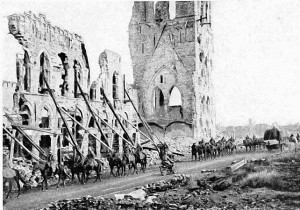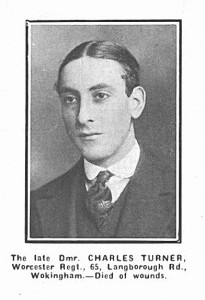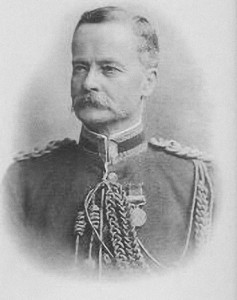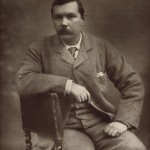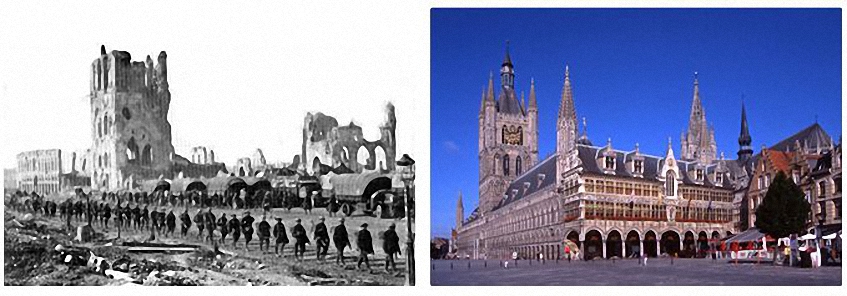In this article we will take you back one hundred years to early 1915, a time when the first cinema had recently arrived in Wokingham, when the unsealed roads were either rutted in the winter or dustbowls in the summer, the occasional car trundling down country roads and the half-light of the gas lamp. It was a quiet place with only a few thousand people living in this ancient forest town and at the back of many of the houses there were miles of open fields and heathland. But this was not a place of peace; for months a dark shadow had been tightening its grip on a town which was only just coming to terms with the full horror of war. In 1915, they still had no idea of the hundreds of deaths they would be facing or the maimed and mentally scarred soldiers who would one day return home.
Wokingham was not a wealthy town and although it had its share of rich landowners and industrialists, it was for the most part the labourers, brick makers, farm workers and domestic service girls who made up the local population. Another option for any hard pressed family needing to move their sons out of the nest (to make way for the new borns) was for them to join the services; sometimes the navy, but mostly the military and that meant the Royal Berkshire Regiment.
It was the First Battalion of the Royal Berks who were one of the first regiments to enter the war’s early battles and Arthur Turner of Wokingham was our first to be killed during fighting at Mons on the 26th of August 1914; only five days after Britain’s first casualty, John Parr lost his life, also at Mons. Parents Abraham and Sarah Turner had ten children in total, all of whom survived into adulthood and the family worked hard to move out of the slums of Queens Terrace in Rose Street and into a comfortable home at 65 Langborough Road, Wokingham. Having already lost Arthur in 1914, lightening was to strike the family a second time when Mr and Mrs Turner lost their second son Charles in 1917.
It was these hard pressed families who took the brunt of the losses in the First World War; hard lives made all the harder after the loss of their young sons.
By early 1915 news was filtering home of another wave of losses as a second battle around Ypres had just followed one which had taken place prior to Christmas. The German army was determined to break through Ypres and capture the Channel ports of both Boulogne and Calais. Had Ypres not been defended by Britain and its Allies, the vast German army would have been able to commence with their plans to invade Britain’s southern coast. The pre-Christmas 1914 battle was known to the Tommy simply as ‘First Ypres’ or ‘Wipers’ which virtually wiped out Britain’s small, highly skilled professional army. Time was spent mustering the remains of the professionals, the reserves and territorials for ‘Second Ypres’ and by sheer grit and determination, managed to hold off an army of vastly superior proportions. It was not until later in the year that Kitchener’s volunteers were able to complete training and enter the field at the Battle of Loos in the September.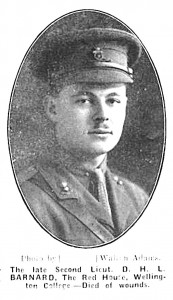
Among this small band of British heroes, were two men from the same Froghall Road, off the London Road in Wokingham. One was Dudley Barnard, a Wellington College educated young man and the other, an illustrious neighbour, Lieutenant General Samuel Holt Lomax who lived in Frog Hall in the same road. Dudley was 21 and had joined the Royal Horse Artillery (Wokingham was an equestrian area) and by 1915 was a Second Lieutenant serving as a French interpreter. He died of blood poisoning following active service on the 10th February 1915.
Just three months earlier on the 31st October 1914 in the same area of Ypres, 58 year old Lt General Samuel Lomax had been injured during a bombing raid at Chateau Hooge. Lt General Lomax was unable to recover from the wounds he had suffered five months earlier and died on the 10th April 1915 and his remains buried at Aldershot Military Cemetery. He had been due to retire in August of 1914, but was called back into active service on the outbreak of war.
He fought in the Zulu Wars, the Boer War and had been recognised as the most successful General of the early part of the Great War following the Battle Le Cateau in August 1914. Sir Arthur Conan Doyle described his death as “a brain injury to the Army and a desperately serious one.” Two soldiers, one at the beginning of his career, one at the end. They died within two months of each other, in the same area of Ypres and came from the same Wokingham road. One hundred years ago.
In little more than two months, Wokingham suffered the following deaths (24 since the start of war):
| Barnard | Dudley | Second Lieutenant | 10/02/1915 | 21 |
| Sargeant | Robert Emeny | Bombardier | 28/02/1915 | 23 |
| Brackley | Charles | Sergeant | 15/03/1915 | 37 |
| Lomax | Samuel Holt | Lieutenant General | 10/04/1915 | 59 |
| Giles | Joseph | Company Sergeant Major | 23/04/1915 | 26 |
| Perry | James | Private | 28/04/1915 | 23 |
| Maynard | Percy Selby Redgrave | Private | 28/04/1915 | 23 |
| Robins | Arthur | Corporal | 29/04/1915 | 37 |

